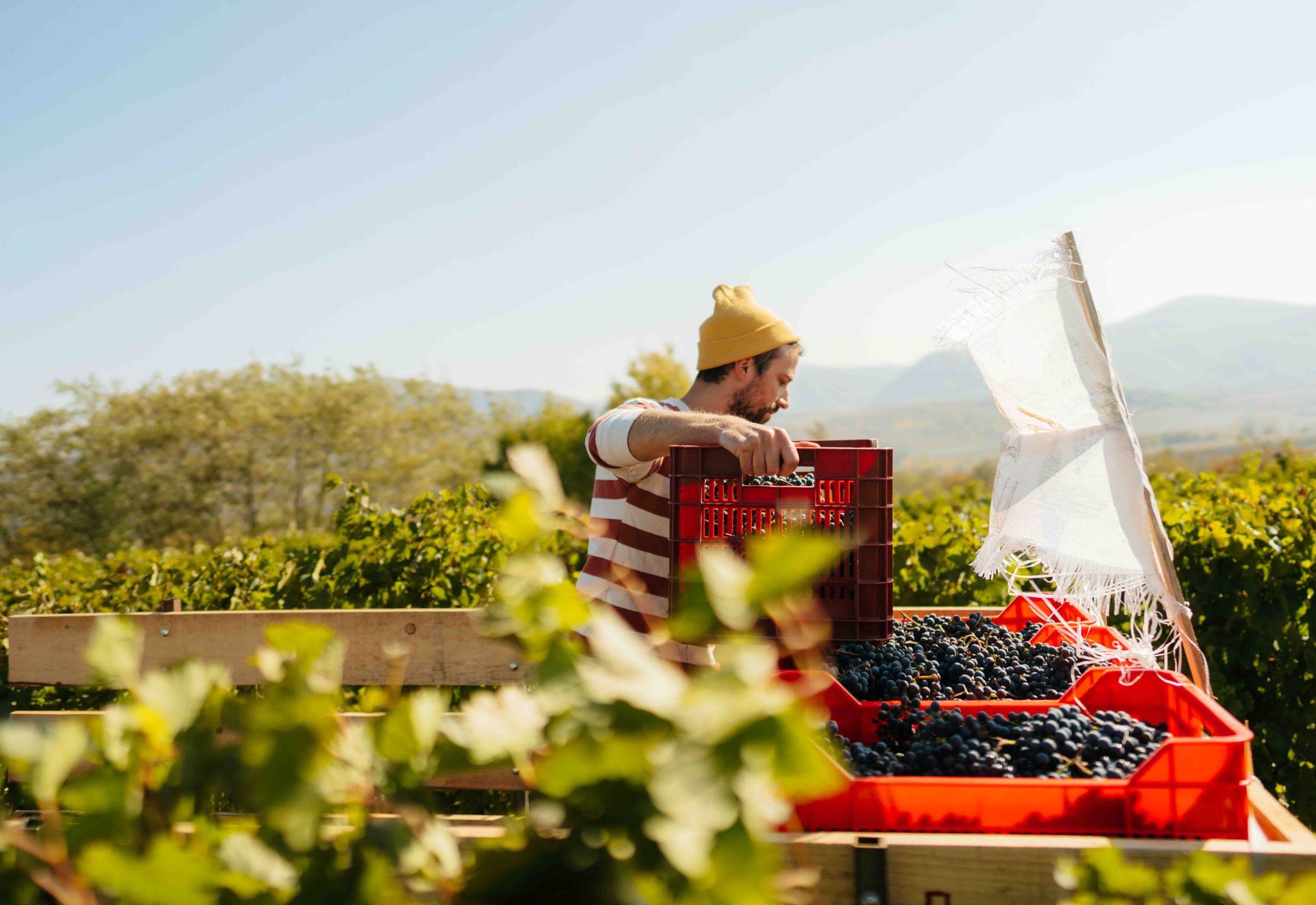Getting bottles into the hands of consumers has always been the greatest source of income for the Australian wine industry. But in 2020, that got considerably more challenging with the arrival of COVID-19. As cellar doors closed, venues were forced to shut and tourism was brought to a standstill, the industry’s domestic wholesale market all but dried up.
Though it’s not often a disruption as large as coronavirus, winemakers are not unfamiliar with unexpected challenges. Over the years they have faced severe drought, bushfires, and are constantly kept on their toes by the effects a changing climate has on their grapes. And while Australia’s wine industry may not be virus-proof, it is indeed virus resistant from an economic perspective. That is to say, COVID-19 has not resulted in sweeping abstinence of wine consumption, and the industry can once again demonstrate its resilience in the face of a challenge.
With restrictions now easing across Australia, the hospitality industry building momentum and borders between states beginning to open, the wine industry can start transitioning from a period of uncertainty and make moves towards rebuilding and reassessing their strategy. Here are some ways in which coronavirus has reshaped the industry and considerations for winemakers to take into account when planning for the future.
Strengthening off-premises sales
The immediate effects of the pandemic on the country’s wine industry were fast and sweeping, with the closure of hospitality venues landing a heavy blow. For Australia’s 2000 or so wineries that produce less than 5000 cases, direct to consumer sales accounted for more than half their revenue. The main avenue for purchasing wine domestically when the pandemic hit then became supermarkets and liquor stores. Panic buying saw spikes in sales across all liquor categories, and in the week ending 22 March 2020, wine sales in the liquor retail category increased by 39 percent compared with the same week 12 months prior.
While hospitality venues remain capped at the number of patrons permitted inside in many states, it is worth looking to these third party distributors as a way for winemakers to get their wine’s label in more people’s hands.
Finding new channels and utilising e-commerce
Though online wine sales have been steadily increasing over the last five years, the closure of the on-trade venues and lockdown restrictions resulted in an unprecedented leap in online wine sales.
According to online wine retailer Vinomofo, it saw a 50 to 75 percent increase in sales since the beginning of the coronavirus pandemic after hospitality venues closed and people tried to limit their visits to retail stores. BWS reported similarly high statistics too, seeing online purchasing up by 79.9 percent in June.
This provides winemakers with the opportunity to take advantage of the surge in online traffic and strengthen their ecommerce offering. A growing number of wine labels have joined or founded their own subscription-based delivery services or started up an ecommerce store as a way to increase direct to consumer sales. Improving accessibility in this way will become increasingly important for winemakers moving into the future, given the current volatile Chinese export market and imposed tariffs.
Foster a sense of community
Amidst the severity of the global pandemic, Australian consumers are becoming more mindful of how companies are ethically positioned, not just with regards to their actions during the pandemic, but also more generally speaking. Consumers are showing more interest in the “localness” of brands, and are increasingly making purchase decisions that align with their personal values, such as climate change, health and other social issues.
For the Australian wine industry, despite a general decrease in sales, this could be an ideal time for building brand awareness and consumer relationships. By utilising the demand for Australian Made products and the ear of the general public to promote organisational values and mission, winemakers can cement themselves at the forefront of consumers’ minds.
One example of this was seen from whisky brand Jack Daniels, which entered into the conversation on social distancing by publishing an advert called ‘ With Love, Jack’ that shows how friends around the world are adapting to a new reality of being apart while trying to stick together, using genuine user-generated footage.
Engage with consumers through digital
For consumers who enjoyed the experience of visiting boutique wineries and cellar doors on weekends, all hope seemed lost when the pandemic hit. However, many of Australia’s wineries quickly adapted by embracing digital platforms that allowed them to engage with their audience and continue to offer them a similar service, albeit through a screen. All of this has been a valuable exercise in branding that will likely serve wineries extremely well.
From hosting online webinars that saw viewers order wine online and participate in digital tastings, to holding online masterclasses, many brands stepped up to the challenge and were able to grow their digital following. Though it cannot be known exactly what consumer behaviour will look like in the mid-term, it is predicted the desire to shop online , reduce time spent in crowds and engage with brands more via social media will continue. Winemakers should take note of this and begin (if not already) to incorporate a sound digital strategy into their future business plans.
Reflect and plan ahead
According to British wine consultant and writer Robert Joseph , wine businesses could use this time to review their business model and plan strategically for the time post-pandemic, including everything from new products and pricing models to distribution channels and promotional activities.
“What if now were the time to think seriously about starting something new? A novel blend, or a single-vineyard wine, or maybe even opening a brewery or a micro-distillery?” he told Wine Business International.
There is a lot to be said about this notion of reflection for businesses, which has in fact been shown to improve productivity by 23 percent, and is more beneficial than simply acquiring new experiences without the same level of reflection. So, as Australia begins the transition to the “the new normal”, perhaps now is the ideal time for winemakers to assess the direction of their business, take learnings from the pandemic and utilise them to forge a stronger strategy moving forward into 2021.
If you are looking for staff, partner with a brand that understands Australia’s wine and agriculture industry, and contact CozWine today.



